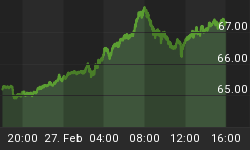The U.S. Dollar is trading weaker this morning as yesterday's optimistic comments from Fed Chairman Bernanke is helping to drive equity markets higher along with the desire for higher yielding assets.
The EUR USD continues to march higher despite weakness in the Euro Zone. Bernanke's comments were much more positive than the rhetoric from the Euro Zone central bankers, but nonetheless, investors are seeking higher yields elsewhere and using the lower yielding assets to fuel these investments.
The GBP USD continues to struggle. Losses have been limited, however, by the pick-up in demand for higher yielding assets. The U.K. economy continues to lag the other major economies. Although there have been signs the economy is nearing a bottom, the economic data has not shown enough strength to declare it has turned a corner. The break since early August was fueled by central bank activity, so don't look for too much upside action until the Bank of England begins to reduce the amount of stimulus being used to prop up the economy.
Optimism about the economy is helping to boost the Japanese Yen after several days of weakness. Overbought conditions have brought the Yen back to an attractive buying area. Japanese investors have felt good about the economy since the administration turned over last month. Continue to look for a stronger Yen as long as the U.S. Dollar remains cheaper. Gains could be limited if the Bank of Japan sees the stronger Yen as a detriment to exports. This could lead to the threat of action to help weaken the Yen. The trend is down in the USD JPY and should remain down unless the Bank of Japan has something to say about it.
Higher yielding currencies like the NZD USD and AUD USD are trading higher this morning. Traders are looking for higher yields and these two currencies offer the highest return of the majors. These two currencies pairs seem to be moving lock-step with the equity markets overnight. Weakness in the U.S. equity markets could lead to a profit-taking break in the Aussie and Kiwi so don't be surprised by a possible reversal later in the day. Speculators are still looking for the Reserve Bank of Australia to be the first central bank to raise rates, but the time frame has been moved to December. Both the New Zealand and Australian central banks are concerned that the rapid rise in their currencies could hurt the economic recovery in both countries if exports weaken.















